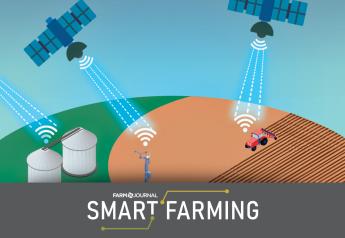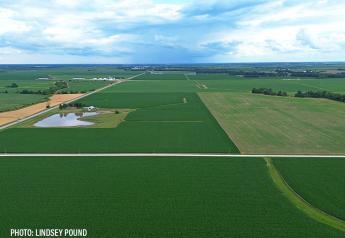Cargill at Odds with Trump, as it Warns on Immigration, Trade

The chief executive officer of Cargill Inc., the largest closely held U.S. company, has become the latest corporate leader to voice concerns about immigration and trade protectionism.
In a speech and an opinion column, David MacLennan warned of the economic dangers posed by curbs to legal immigration. He also said trade protectionism risks creating food shortages and even sparking conflict.
"The current climate has many of our smartest people from outside the U.S. questioning whether they want to stay here," he wrote in the Huffington Post Friday. "We don't want to drive away talented people and their innovative thinking. It would weaken not only our food system, but the U.S. economy."
While the substance of MacLennan's comments aren't totally surprising -- the 152-year-old company was already a supporter of trade liberalization and immigration reform -- it's unusual for Cargill's leader to step into the middle of a fierce national political debate.
Trump's executive order to curb immigration from seven predominantly Muslim countries, a move he says is necessary to maintain national security, has also been criticized by the CEOs of Starbucks Corp., Google and Goldman Sachs Group Inc.
Trump has also signed an executive order to pull the U.S. out of the Trans-Pacific Partnership and is pushing to renegotiate the North American Free Trade Agreement, a deal he has labeled as unfair. Cargill is "eager" to improve NAFTA but "not dismantle it," according to MacLennan.
Any slowdown in the flow of international trade would be a problem for Cargill and competitors such as Archer-Daniels-Midland Co., Bunge Ltd. and Louis Dreyfus -- the so-called ABCDs of global agricultural trading. Cargill's earnings have already come under pressure in the past few years from low commodity prices and the slowing growth of some economies.
 Cargill says trade helps move surplus supplies to areas of need. © Bloomberg |
Based in Minneapolis, and still controlled by its founding family, Cargill's business is truly global, employing 150,000 people in 70 countries and with $107 billion of revenue in its most recent fiscal year. As well as the trading and distribution of staple crops such as corn and wheat, the company has branched out into meat processing, vegetable oil and fish food.
"We cannot wall ourselves off" from the 96 percent of the global population that lives outside the U.S.,
MacLennan said Friday in a speech at the University of St. Thomas in St. Paul, excerpts from which
were tweeted by Cargill.
"We've seen what happens when protectionism disrupts the free flow of food," he said. "It can provoke famine, cause conflict and even war."







